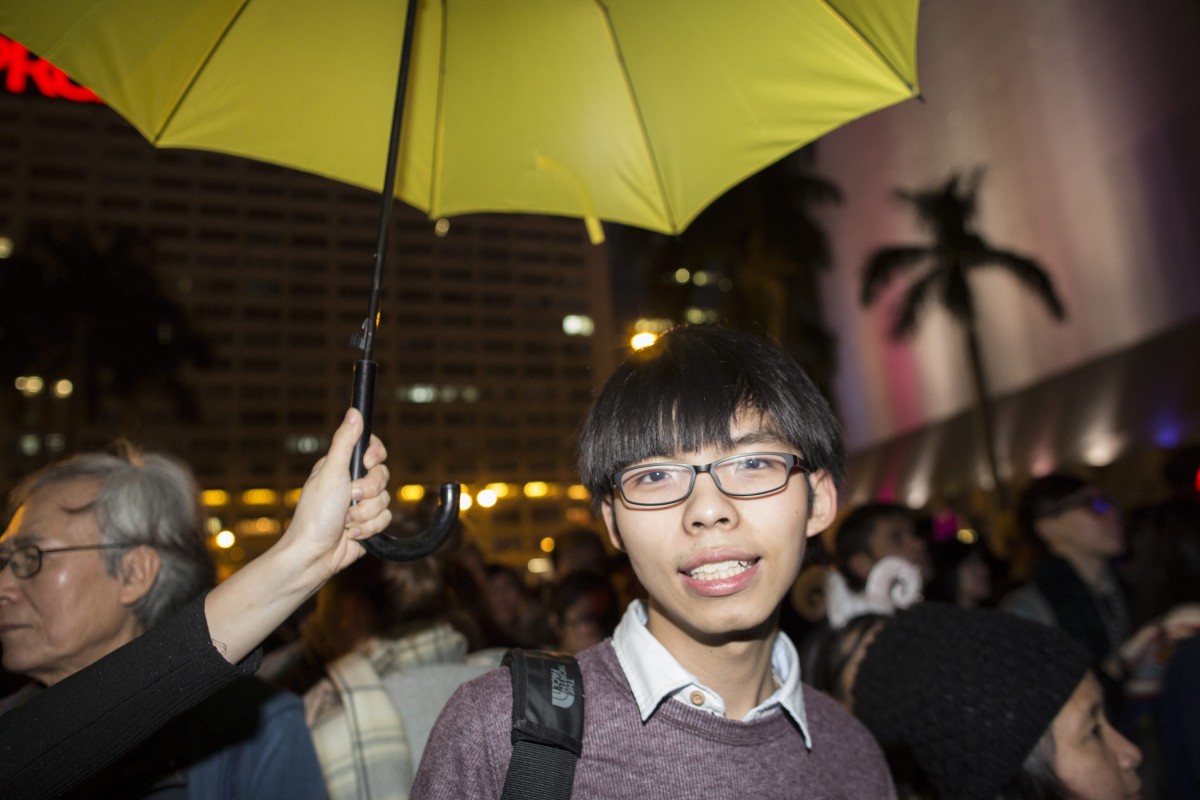
The Occupy Central protests might be over, but South China Morning Post political editor Gary Cheung wonders if Hong Kong's youth can ever be BFFs with Beijing
 Student leader Joshua Wong takes part in a protest in Tsim Sha Tsui, on New Year's eve.
Student leader Joshua Wong takes part in a protest in Tsim Sha Tsui, on New Year's eve.While economists and industry leaders are counting the economic costs of Occupy Central, perhaps a bigger casualty than the economy of the street blockades is the further erosion of trust in Beijing among Hong Kong people, particularly the young.
According to the University of Hong Kong’s public opinion programme, 41 per cent of 1,014 Hongkongers surveyed last December said they distrusted the central government, with the levels of distrust higher among the young; 68 per cent of those between 18 and 29 reported distrust, compared with 40 per cent among those from 30 to 49, and 32 per cent among those aged 50 or above.
Many mainland officials could not understand why Beijing, which has spared no effort in helping Hong Kong ride out the economic hard times since the handover, has failed to win over the hearts and minds of its people.
But, as Mao Zedong once said, there is no such thing as love or hatred without reason.
In early 1984, the student unions of HKU and Chinese University wrote to then premier Zhao Ziyang stating their support for the handover of Hong Kong and calling for democracy after 1997. Zhao replied in a letter that it was “only right and proper” to adopt a democratic system after 1997.
Yet, three decades on, the goal of universal suffrage still seems a long way off. Beijing’s zero-risk model for electing the chief executive by universal suffrage in 2017, under which only two or three candidates who secure majority approval from a 1,200-strong nominating committee could be chosen by millions of voters, has alienated it from many Hong Kong people, particularly young people who are impatient with the slow pace of democratisation.
Veteran pro-democracy activists who recognise the political restraints have, over the years, held rallies, initiated hunger strikes and taken part in dialogue to press for change. But many young people today have concluded that dialogue is useless and have opted for more unconventional methods.
Beijing’s refusal to engage with student leaders involved in the Occupy protests sent the disturbing signal that the mainland has shut its door to Hong Kong students with divergent views.
See what student activist Joshua Wong Chi-fung had to say to Chief Secretary Carrie Lam Cheng Yuet-ngor when they met at a radio station recently.
But can young people in Hong Kong “unfriend China”? Occupy co-founder Chan Kin-man posted an article online on New Year’s Day that promptly went viral, in which he detailed his difficult decision to “unfriend China” – that is, gave up his two-decade effort to foster civil society on the mainland – after suffering years of frustration.
But, like it or not, Hong Kong youth cannot afford to dissociate themselves from the mainland. Many are not interested in understanding Chinese history and the latest developments on the mainland. There is also a lack of realisation among the activists that trust has to be rebuilt across the border.
During the Occupy protest, I warned some mainland officials that Beijing would lose the support of this generation of young people if it refused to address their aspirations for greater democracy.
But the question that comes to mind is: Does Beijing care?
This article was published in the South China Morning Post on January 13, 2015